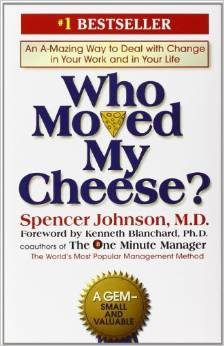“Though you can love what you do not master, you cannot master what you do not love.”
—Mokokoma Mokhonoana, South African Philosopher and Social Critic
Generally, the people who experience the greatest success and fulfillment in their professional lives demonstrated three key factors:
- They are enthusiastic and passionate about their work. Many would engage in whatever it is they do even if the monetary rewards were more modest.
- Because they love what they do, they commit massive amounts of time to the practice, and eventual mastery, of the skills involved.
- The final piece that accompanies this love and mastery is often the value ascribed to it by the meritocracy in which we live, and the rewards we often receive. How much is it worth in dollars and cents?
EXERCISE:
How and in what ways can doing more of what you love lead you toward a life of greater mastery and success? Consider reading one or more of these books, which speak in one form or another, to the spirit of today’s quote:
What to Do When it’s Your Turn by Seth Godin
Linchpin by Seth Godin
Happier by Tal Ben-Shahar
The Happiness Project by Gretchen Ruben










